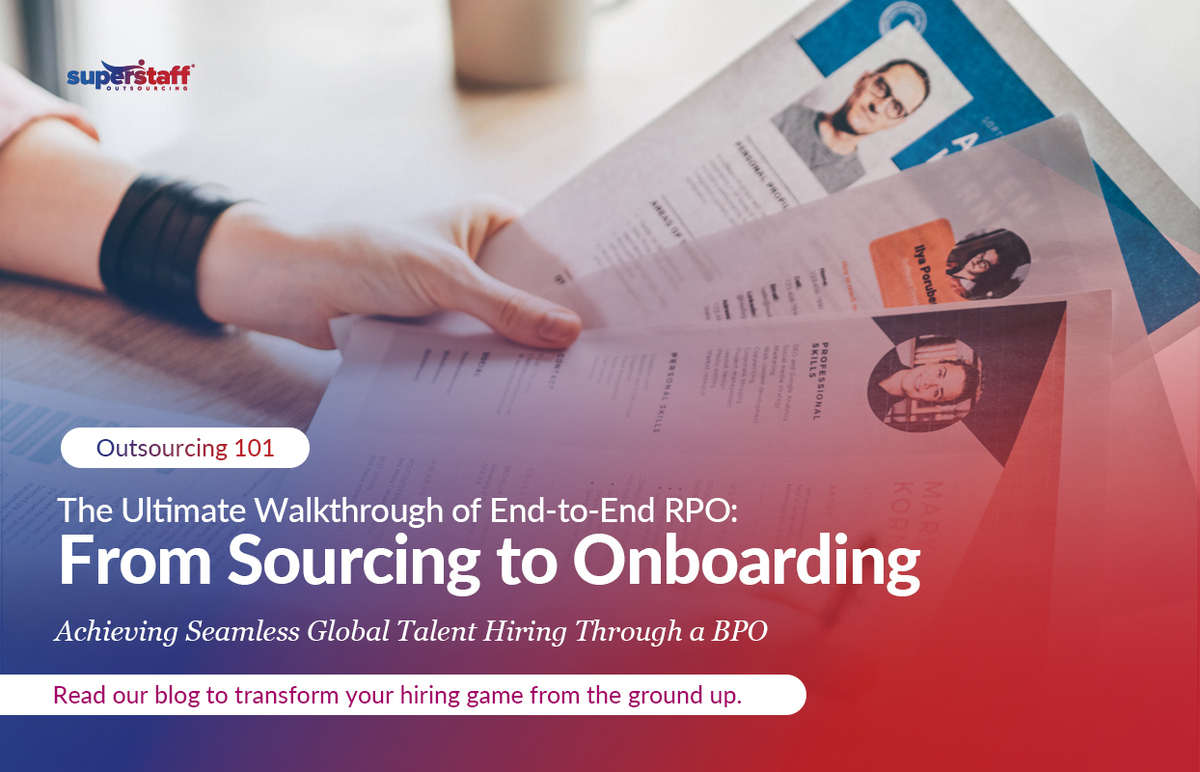When an essential employee leaves a company for whatever reason, recruiters and HR outsourcing staff have to abandon whatever they are working on to go through the process of looking for candidates to fill the vacancy. While finding and hiring top talent is a priority, many seem to lose focus on another crucial part of the process: employee retention.
High retention is a good indicator that a company is a good employer; this can earn you a reputation as a company that takes care of your employees. Consequently, your highly engaged employees can refer candidates that are more likely to be hired and fit the culture. Take note that 88% of employers report that referrals are the best source for above-average applicants.
Additionally, replacing existing employees can cost your business 33% of the employees’ annual salary. There’s no doubt losing a team member is more expensive than keeping one. And the stakes are much higher when your company loses a top performer.
Tips to Improve Employee Retention
To help keep your team intact and not part of the 75% of employees who don’t plan to stay for more than five years, here are employee retention tactics that you have to employ:
-
Invest in your team’s learning and career development
The whole point of making a living is to earn an income while developing skills that help advance your career. If a company wants to retain its employees, they will need to hone their skills while letting them learn and try new things. One of the most popular trends is to provide industry-specific training programs and in-house seminars to help employees become better over time.
-
Grant autonomy over their tasks
Autonomy in the workplace refers to the level of freedom employees have while performing their duties. It’s one of the essential elements that can build real employee engagement. If you make them work like machines that are programmed to do their jobs by being told what to do next, they won’t be able to grow and progress as employees.
For some organizations, autonomy means a flexible work schedule, while others allow employees to decide how to accomplish their tasks. Regardless of the concept applied, higher levels of independence tend to result in greater job satisfaction.
-
Build and maintain healthy and positive relationships with exceptional performers
Leading an organization full of exceptional employees has always been the dream of every employer. Losing one can be crippling, so you should establish and maintain a strong relationship with them. You can do this by embracing your role as an honest leader who provides constructive feedback each time it’s needed through established lines of communication.
-
Encourage work-life balance
It can’t be stressed enough; organizations should encourage a healthy work-life balance among their employees. Observing a healthy balance of professional and personal time boosts productivity, lowers stress, improves overall employee health and morale, and brings about a more positive perception of you as an employer. With all these benefits combined, the result is a loyal employee with fierce commitment and motivation to perform well.
Modern company culture involves programs that help employees balance everything out. Telecommuting, flexible work schedules, and team engagement activities are some of the ways your hard workers can cope with high levels of stress. It’s time all organizations find ways to help their employees manage stress and become better versions of themselves while they’re at it.
-
Provide competitive compensation and recognition programs
Incentivizing excellent employee performance can be a powerful driving force that helps propel your organization closer to its goals. Combined with recognition, you have a formula for a higher employee retention rate. Who doesn’t want to be paid for doing well and be recognized for it? Or better yet, what about a personalized corporate rewards?
When excellent work is validated, either by monetary compensation or recognition—or both—the results are not only beneficial to them but also your organization. Productivity, job satisfaction, and overall employee happiness will prove to be invaluable in your quest for employee retention.
-
Always have your team’s back
When building relationships with your employees, one of the most important factors to consider is the trust that lets them know that you have their best interests in mind. Always.
You will have employees with different strengths, weaknesses, and personality types. Making them complement each other will all be up to your leadership skills and whether or not they feel like you’re adequately supporting them. Knowing that you’re behind them allows them to flourish and realize their full potential, encouraging them to stick around longer.
Make Your Top Talents Stay
Self-actualization is the key in employee retention. Once your employees are convinced that they’ve found the right organization that can help them achieve this, your business goals become theirs. If you can provide all that an employee needs, you give them no reason to look for opportunities elsewhere.
As a cherry on top, your highly engaged employees can refer candidates that are more likely to be high-performers. Aside from being one of the best sources of hires, employee referrals can also speed up the recruitment process by 55%.
Finding top talent and keeping them can indeed be a tall order for any business, so let SuperStaff’s exceptional recruitment process outsourcing services make sure you do both.






